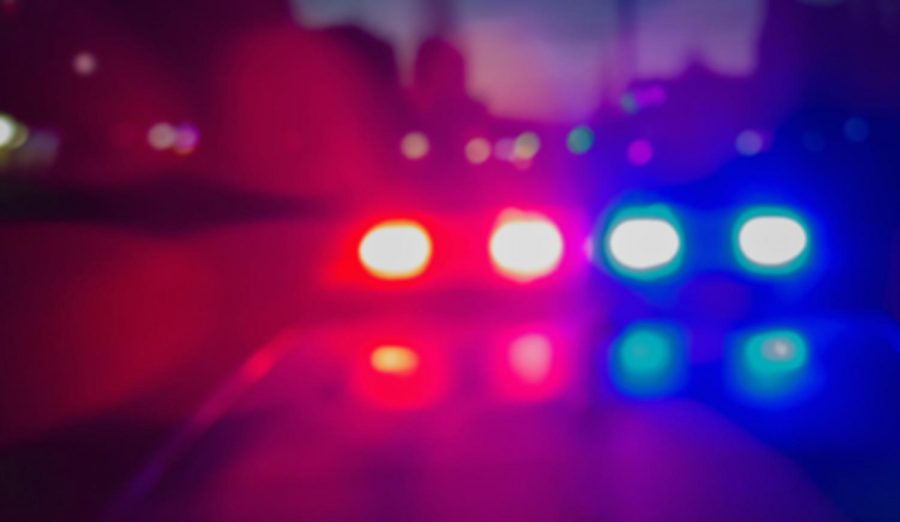Law School Symposium Explores Race and Law Enforcement
Saying their names aloud, one by one, Alain Massena ’00, president of the St. John’s Law Alumni Association’s Alumni of Color Chapter, evoked the memory of countless Black and Brown Americans who have been victims of police violence. It was a powerful introduction to an April 23, 2021 symposium that brought Law School community members together virtually with policymakers, activists, scholars, and others to explore the timely topic of race and law enforcement.
Welcoming the participants to a day of listening, learning, and taking action, Dean Michael A. Simons noted that the symposium was “the last event of an event-filled year bookended by George Floyd’s murder and Derek Chauvin’s conviction.” It was also a year that saw the Law School animated by individual and collective efforts to answer the Vincentian question—What are We Going to Do? Throughout the year, Dean Simons said, the Alumni of Color Chapter has been an invaluable partner in making St. John’s Law “an authentically antiracist institution.”
With a call to listen, the first symposium session began as civil rights trial attorney Kareem Vessup ‘01 CPS, ’04L facilitated a candid conversation with two young men, who shared how they were victimized by the policing of Black and Brown communities. The next session, moderated by Cheryl Wade, the Dean Harold F. McNiece Professor of Law, added context to those deeply personal accounts. With the perspectives of practitioners and scholars, the panelists examined the historical and legal precedent that has facilitated the marginalization of communities of color and allowed for the unequal policing and unjust treatment of those communities.
After listening to, and learning from, the first two symposium sessions, attendees received a report from the front line of the fight against racism in America. In his keynote address, civil rights attorney Ben Crump reflected on his work representing the families of Ahmaud Arbery, George Floyd, Trayvon Martin, and Breonna Taylor, among many others. “We’ll win this war,” Crump said, opining that it’s a battle to be waged by speaking truth to power in the “court of public opinion” as well as the court of law. The fight extends beyond civil rights lawsuits, Crump explained, citing legislation and substantial policy reforms, like the George Floyd Justice and Policing Act.
Crump concluded by conveying hope for the future. Recalling how Martin Luther King Jr. said that “we all have a role to play in this struggle for equality and justice,” he called on St. John’s Law students and alumni to “do something to try to even the playing field,” to right wrongs, to give voiceless people a full voice, and to join him and others advocating for critical change. With a nod to his “personal hero” and “north star,” the late Supreme Court Justice Thurgood Marshall, Crump summed up the aim of his action and advocacy when he said, “What we are doing is helping America be America for all Americans.”
Taking action was also the focus of the third and final session of the day. Guided by moderator Beth Do ’21, the panelists offered insights—drawn from their work on the ground in law enforcement, policymaking, and community activism—about developing solutions that address the complexities of systemic racism and oppression within the criminal justice system. Those solutions, they shared, include local, state, and federal policy reform to shift the balance of power and create accountability in policing. They also include reimagining ‘public safety’ by investing in social and other services that help to uplift and sustain communities.
To close an interesting, informative, and inspiring day, Alain Massena thanked the two Session 1 speakers and the other session panelists:
Session 2:
- Jasmine Brown ‘19, associate attorney, Law Office of Vincent Toomey
- Jeffrey Fagan, Isidor and Seville Sulzbacher Professor of Law, Columbia Law School; Professor of Epidemiology, Mailman School of Public Health, Columbia University
- Omavi Shukur, Assistant Counsel, NAACP Legal Defense and Education Fund
Session 3:
- Queenie Paniagua 12, Deputy Bureau Chief, Blue Zone, Trial Bureau II, Kings County District Attorney’s Office
- Edwin Raymond, Lieutenant, New York City Police Department; Candidate, Council District 40
- Nick E. Smith ‘10, First Deputy Public Advocate, City of New York
- Quentin Williams, Founder and CEO, Dedication to Community (D2C)
Massena also called the attendees to ongoing action at the intersection of race and law enforcement with this parting message: “We are agents of change. We are social engineers. I ask you to make the changes you want to see.”

